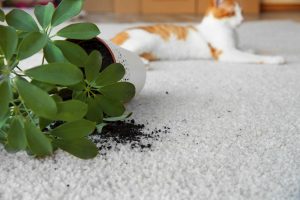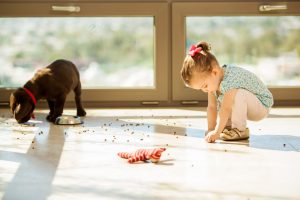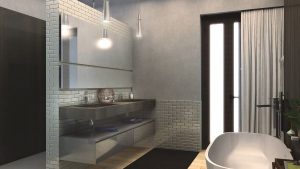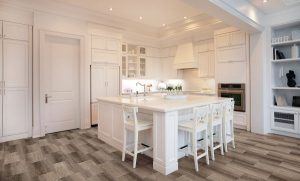Year-Round Flooring
As seasons change, the weather changes. From cold to hot, dry to wet, dead to alive. Some people don’t know that while the seasons change, some floors change too, and if you aren’t prepared for the flooring to change, then you’ll probably be looking for new flooring soon. There are plenty of year-round flooring options that don’t change with the seasons.
Hardwood
First, let’s get through the changing floors. Hardwood is a flooring that changes with moisture and temperature changes as a result of being a natural product. It expands and contracts all by itself and not all in the same direction, which can cause hairline cracks and slight height variations.
That’s why it’s always better for hardwood to be in a room where the temperature and moisture levels never really change. The hardwood floor needs to be acclimated in the room it will be installed to for 4-5 days prior. That room should be climate controlled with maintaining the indoor humidity. It’s all a very difficult process, especially during season changes.
Carpet
Carpet isn’t necessarily a bad flooring to have, however, it’s just not as durable and long lasting as other options. With carpets, you have to worry more about having seams, collecting dust and dirt over the years, and absorbing spills to cause stains. All of these things aren’t the best both visually and for quality of living purposes, especially if you have allergies. Come spring time, you’ll want the windows open to enjoy the fresh air, but the carpet might absorb the pollen blowing inside.

Laminate
Laminate flooring is a better option for year-round purposes because of its durable surface and stain resistance that makes it easy to maintain. Perfect for busy households with pets and kids. The only backside of laminate would be its floating floor system, which can produce a hollow sound and have a slight give when walked upon. Slight ridging or peaking where planks are joined might also occur.

Tile
Tile is one of the more recommended floorings, but keep in mind, tile is complicated, because yes, tile is a great and reliable flooring, but it’s also risky. Tile can be expensive and is the most difficult flooring to install. However, its quality is great, and it usually lasts long. What’s risky about tile is damage. Tile can crack and the grout can get cracks more easily. This is definitely something you have to consider if you have a lot of foot traffic, including kids and pets. A small mistake, like a drop or spill, could be bad news for the tile.
If you love the look but don’t want to take the risks, you can always consider tile for the walls. It creates a beautiful design in any room.

Luxury Vinyl
Depending on which brand you choose, luxury vinyl is one of the top choices recommended for long-lasting floors. I say it depends on which brand you choose because there are just some that are more reliable than others. Many luxury vinyl floors can be complicated in ways such as scratching and indentations can occur, as well as issues with fading from sunlight
But then there’s COREtec, where these problems don’t occur. COREtec is a luxury vinyl that is 100% waterproof, making it able to be installed in any room and location of the house. With the many layers COREtec is built from, it gives this product a cork underlayment that adds comfort and sound deadening properties, along with the luxury vinyl layer, that on top of all these advantages, you can have the exact look of a hardwood or tile for a naturally beautifying floor.

With all of these different types of flooring, they all have their advantages and disadvantages and all that really matters is you getting the flooring that you want that works with your design and your lifestyle. Visit our website to find that perfect flooring you need!


